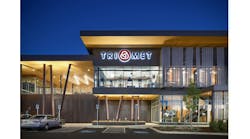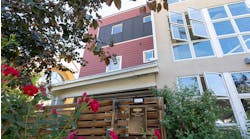The Los Angeles County Metropolitan Transportation Authority (Metro) Board on Dec. 3, approved the fare structure for the county’s planned Bike Share Program, providing a user-friendly, flexible and accessible system for future regional bike share users.
Metro’s bike share pilot program is scheduled to begin in mid-2016 with approximately 1,000 bikes and up to 80 bike share stations throughout Downtown L.A. The program will later expand to nine other communities within the county, creating a regionwide system totaling 4,000 bicycles pending board approval.
Metro’s bike share fare structure will include a special promotional offer and consists of three simple pass options designed to meet the needs of every potential bike share user, from local residents to tourists:
- Frequent Users: $20 monthly pass, with unlimited free trips up to 30 minutes each. For trips over 30 minutes on the same bike, $1.75 will be charged for each additional 30 minutes. If users dock a bike within the 30 minute timeframe and check out a new bike, the clock will be restarted and no additional charges will be applied.
- Occasional Users: $40 annual Flex Pass, plus $1.75 per trip up to 30 minutes each and $1.75 per extra half-hour.
- Casual Users: No monthly or yearly pass charge is required. A “Walk-up” rate of $3.50 will be charged per trip up to 30 minutes each, and $3.50 per every extra half hour.
To provide an incentive for all types of users to try Metros’ Bike Share Program, Metro is exploring a number of promotional activities in connection with the system launch. One such activity will be aimed an encouraging casual users to try bike share in which all walk-up trips will be half off ($1.75) for the first two months of walk-up access. The walk-up rate will revert to $3.50 after the promotion period expires.
“Metro’s new bike share fare structure will provide a range of options for our future customers,” said Mark Ridley-Thomas, L.A. County Supervisor and Metro Board Chair. “We also intend to offer a low-cost fare for new riders during their first two months of use to encourage everyone to take our bikes for a spin.”
In developing its countywide bike sharing fee structure, Metro sought to make the system accessible for the greatest number of users as well as a fare structure that would be successful in communities throughout L.A. County.
The low price for the walk-up rate at $3.50 is expected to help lower the barrier of entry to draw more people, particularly those with lower incomes, into trying bike sharing for the first time. Metro modeled its fare structure after a transit fare structure to position bike sharing as a integrated element of transit over time.
“This program brings us one step closer to creating a robust, viable bike share program for L.A. County,” said Phillip A. Washington, Metro CEO. “When fully implemented, it will bring new active transportation options that will extend the reach of transit for our customers.”
The Board also approved Metro’s multi-step interoperability strategy that phases in efforts to create a seamless user experience among Metro’s bike share program, transit and other bicycle services in L.A. County.
With two different bike share vendors in the county, Metro envisions co-locating stations in key areas where bike sharing systems overlap. Metro plans to provide a uniquely branded Transit Access Pass (TAP) card that will serve as the bike share user’s key needed to unlock bicycles at each station. For the launch, fares will be paid by the credit card linked to a bike share user’s account. The user may load transit fare on to the same TAP card at a ticket vending machine. However, Metro envisions a system where the payment mechanism in the bike share system and TAP could be linked. The interoperability strategy, as approved by the Metro Board, will ensure future seamless user integration where the account registration and/or payment for Metro transit services and multiple bike share vendors is linked.


